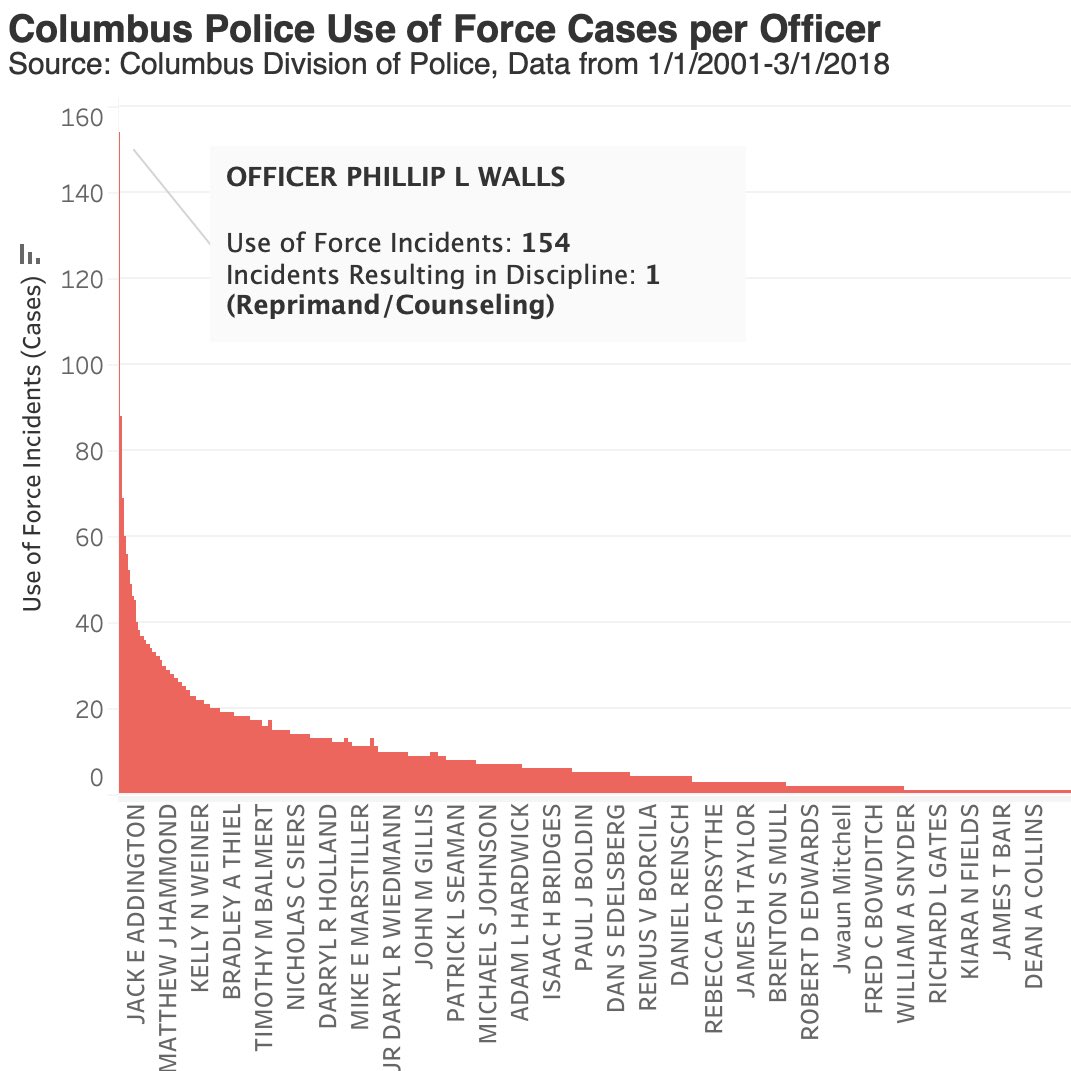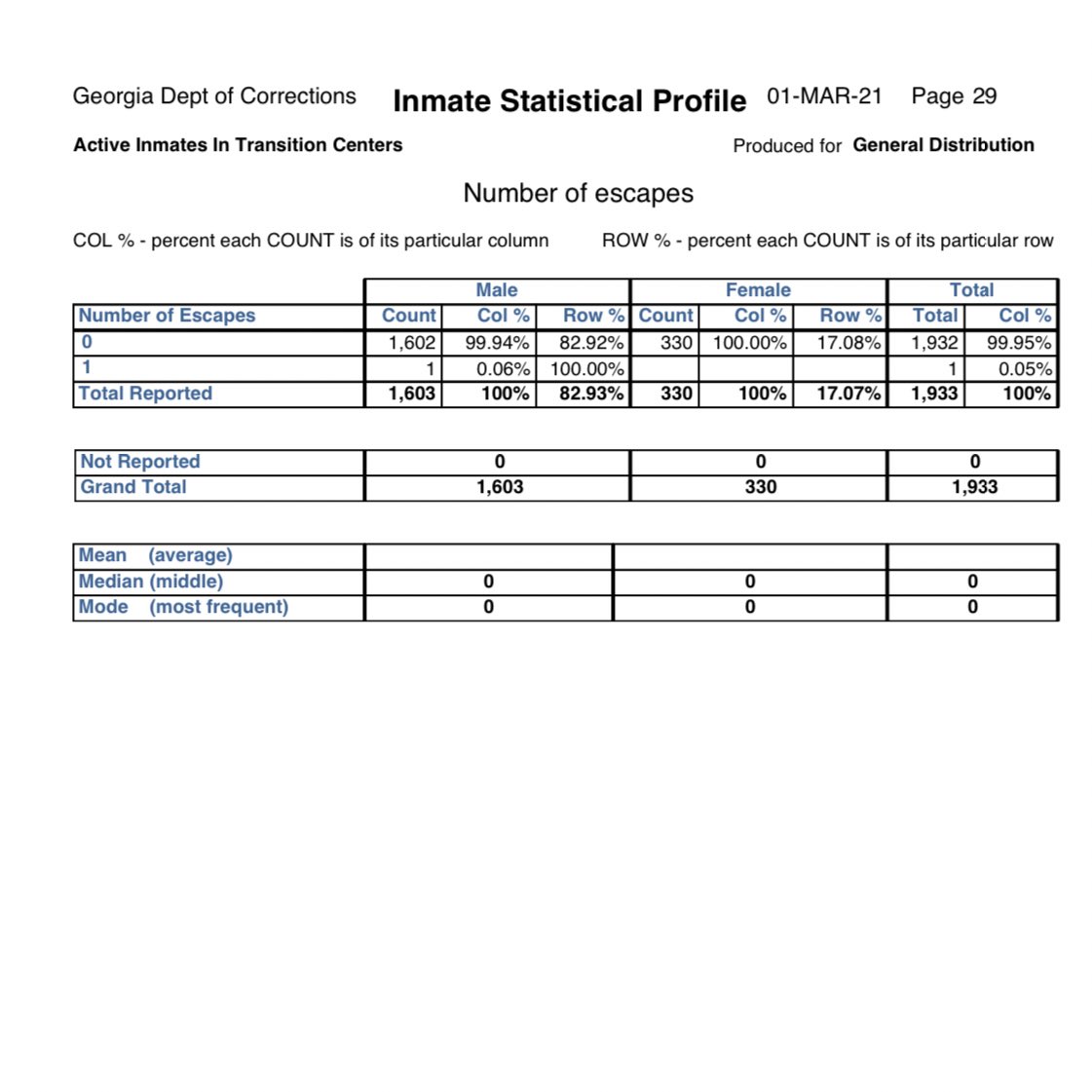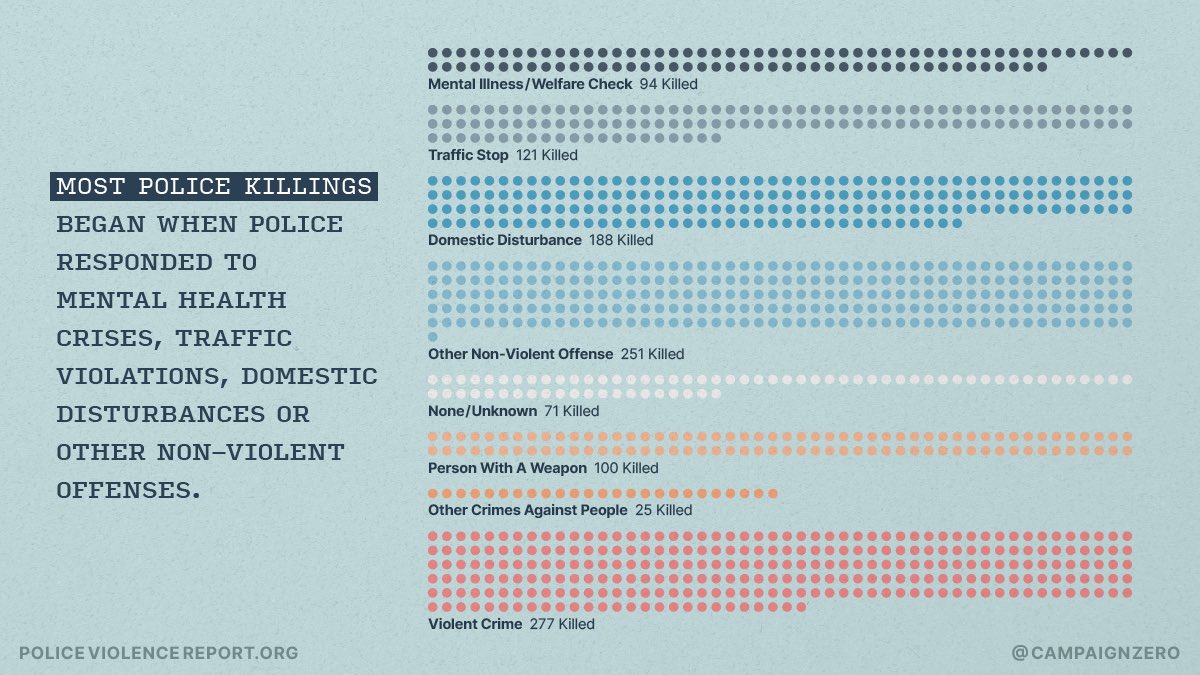
The FBI use of force data collection is a joke. They track substantially fewer incidents than we’ve already published online at mappingpoliceviolence.org and they say they won’t publicly share their data anytime soon. A distraction.
https://twitter.com/washingtonpost/status/1402629786715971594
They could supplement their data collection by referencing media reports and existing databases (MPV, Fatal Encounters, WaPo) but instead they decided to rely *solely* on voluntary data collection from 18,000 police agencies, 73% of which aren’t currently choosing to participate.
They could decide to publish the data they *have* collected, which covers 27% of agencies. At least we could do something with that. But nope, the FBI decided they won’t share any department-level data until 80% of law enforcement participates - which likely will never happen.
Honestly you couldn’t make up a more useless program until you realize the FBI is running it and they have an interest in appearing to be doing something about police violence without doing anything that would actually promote basic transparency and accountability in policing.
It’s like one bit distraction that serves the interests of the police and the feds, while leaving journalists thinking that this program actually is a real thing that might someday matter - it won’t and that’s by design.
Meanwhile *the data already exists* and its *public* and the federal government, despite their best efforts, could not do what the people have already done - compiled comprehensive data on fatal police violence without depending entirely on the police to report the data.
Data on fatal police violence has *been* published at mappingpoliceviolence.org and FatalEncounters.org. Detailed analyses of nonfatal police shootings/use of force are published at policescorecard.org . There’s more than enough data, already, to make the necessary changes.
• • •
Missing some Tweet in this thread? You can try to
force a refresh














